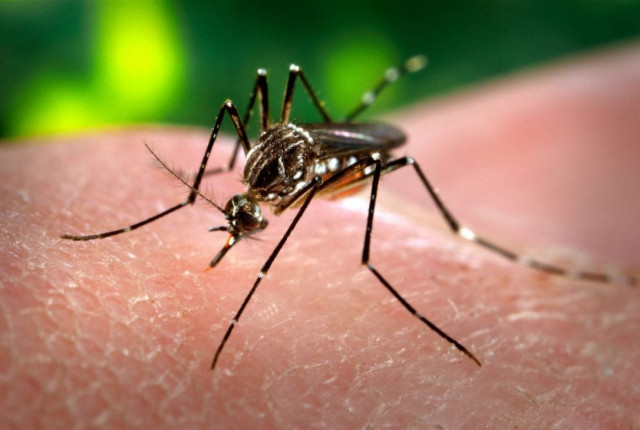PTI govt admits not taking proper steps to control dengue
PM’s special adviser on health says better measures could have been taken to stop the spread of epidemic

PHOTO: REUTERS
“For sure, we could have taken better steps,” Prime Minister Special Adviser on Health Dr Zafar Mirza said while addressing the National Assembly Standing Committee on Health meeting under the chairmanship of Khalid Magsi.
The National Health Institute had already issued dengue virus alert in the month of May.
Dr Mirza maintained that Pakistan was not only the country affected by dengue but the virus existed in more than 100 countries. He said that more than 12,000 persons had been infected by the virus across the country of which the highest number was in the Potohar region.
Out of the total, 2,363 patients are from Punjab; 2,258 from Sindh; 1,814 from KP; and 1,772 from Balochistan.
Dr Mirza said, at the directives of PM Imran, he would work with the Pindi administration to stop the spread of the epidemic.
Committee Chairman Khalid Magsi remarked despite the burden of patients in the hospitals of Islamabad, patients were being treated fairly well.
Earlier, Mirza had assigned Director General Health Dr Asad Hafeez to conduct the clinical audit and physical inspection of dengue wards in all four major hospitals of Islamabad — Pakistan Institute of Medical Sciences, Polyclinic, Federal General Hospital and National Institute of Rehabilitation Medicine.
A daily report would be submitted to Dr Mirza, Secretary Health Dr Allah Bakhsh Malik and the Dengue Control Room.
The chief of the National Institute of Health’s field epidemiology division was assigned to update National Action Plan on dengue outbreak with inputs from all provinces so as to ensure adequate planning, training, curative, preventive and outbreak response for next year.
Meanwhile, Drug Regulatory Authority of Pakistan (Drap) chief, while addressing the session noted that in order to meet the international standards, certain rules and regulations had been formulated for the regulatory body, which includes medical device, bar-coding, bio-study, and drug pricing rules, while pharmacovigilance, ethical marketing and other rules were under consideration.
The committee sought details of life-saving medicines being imported from India from the Drap officials.
Drap chief said that the life-saving drugs and vaccines were imported from India due to the fact that they were cheaper in price and were not manufactured in Pakistan.
Dr Mirza said that PM's monitoring commission had prepared a report on Drap which would be shared with the committee.
Committee chairman decided to call a special meeting to discuss the issues of the regulatory body.



















COMMENTS
Comments are moderated and generally will be posted if they are on-topic and not abusive.
For more information, please see our Comments FAQ